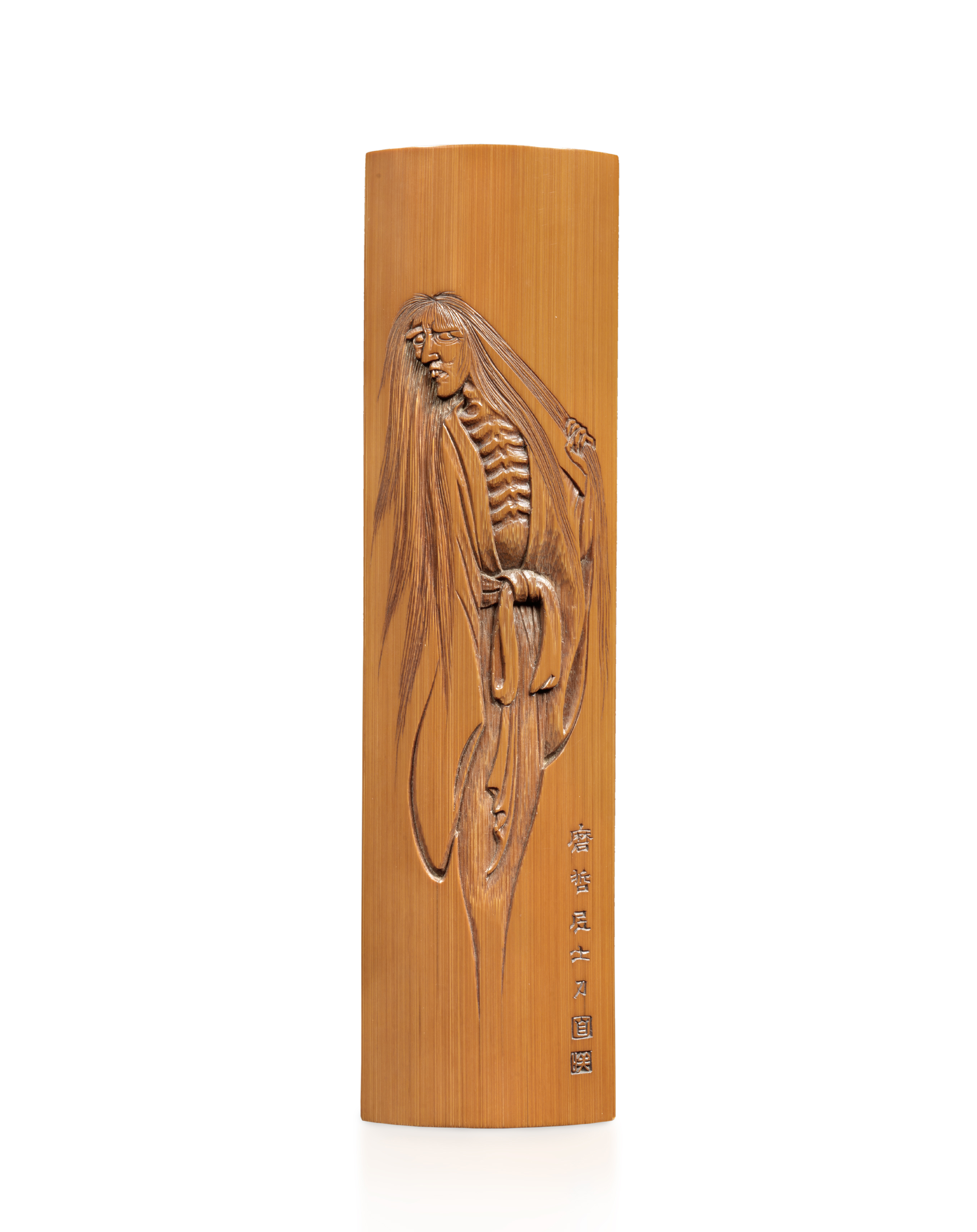The Hand
Chiharu Nishijima / Sculpture
- Contact Us
-
Material
Wood
-
Size
24 (h) x 12 x 10 cm
-
Period
2015
-
Published
"MINIMAL" - CHIHARU NISHIJIMA - 2019 by Galerie Mingei
Description
" When one examines woods like Zelkova serrata (keyaki) and cherry (sakura), one comes to realize that there are no straight lines or right angles in the natural world. The same is true of the human world, but modern life demands and values rationality and productivity, and compels us to violate the principles of the natural world. Our environment becomes fragmented and our overall vision tends to get blurred.
In Japan as in Europe, traditions are disintegrating while people make statements of protest. Globalism dominates the planet, and we have lost any sense of moving forward. We Japanese must work with the awareness that our problems are not the same as those of the Western world. Japan has been obliged to westernize for the past 150 years and the issues it faces are different from those that Europe must address. Japan has been trying to catch up with and surpass the West, but in so doing, it may have lost itself. Those who belong neither to Japan nor to the West or any other place are rejected, as cultures and traditions fall apart and confusion deepens.
We live in the midst of all this and I am awakened by the word of Siddhārtha. This is not the voice of organized Buddhist religious communities, but the direct and actual voice of Siddhārtha, who lived and performed ascetic practices 2500 years ago. As the Zen Buddhist dictum puts it, “Humans are rooted in Heaven and Earth, and one with Myriad Things”. This refers to the importance of awakening the original self and regaining the sense of time of primordial ages. Quintessential forms that have been lost now existed then. These forms were based on the heart of mercy, and the original self. When I carve my works, I think of these - this is Humanity. My work is not a Buddhist sculpture as an object of worship, nor a European-style sculpture. What I carve is figures of humans when humans were free and dignified.
One of Siddhārtha’s most important concepts is Emptiness/ Sunyata (Kū in Japanese). It expresses the idea that everything is relative and that absolutes are annihilated. All matter is formless. In modern times, Ferdinand de Saussure has stated that languages are based on varied systems of codes, and a language merely exists based on differences and oppositions relative to other languages. I see this as an example of what Siddhārtha’s would describe as Kū.
I begin to feel enlightened. When I touch, and carve wood, I receive the revelations. This has made it possible for me to seek and awaken the truth inside me. "
Chiharu Nishijima


